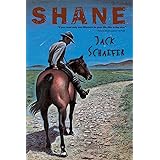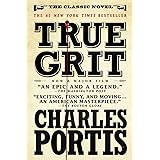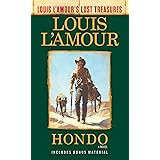
Download the free Kindle app and start reading Kindle books instantly on your smartphone, tablet, or computer - no Kindle device required.
Read instantly on your browser with Kindle for Web.
Using your mobile phone camera - scan the code below and download the Kindle app.

OK
 Audible sample Sample
Audible sample Sample 


The Virginian Paperback – March 11, 2010
- Print length536 pages
- LanguageEnglish
- PublisherBCR (Bibliographical Center for Research)
- Publication dateMarch 11, 2010
- Dimensions7.44 x 1.08 x 9.69 inches
- ISBN-101117892468
- ISBN-13978-1117892467
"Layla" by Colleen Hoover for $7.19
From #1 New York Times bestselling author Colleen Hoover comes a novel that explores life after tragedy and the enduring spirit of love. | Learn more
Similar items that may deliver to you quickly
Product details
- Publisher : BCR (Bibliographical Center for Research) (March 11, 2010)
- Language : English
- Paperback : 536 pages
- ISBN-10 : 1117892468
- ISBN-13 : 978-1117892467
- Item Weight : 2.09 pounds
- Dimensions : 7.44 x 1.08 x 9.69 inches
- Customer Reviews:
About the authors

Discover more of the author’s books, see similar authors, read author blogs and more

Discover more of the author’s books, see similar authors, read author blogs and more

Discover more of the author’s books, see similar authors, read author blogs and more
Customer reviews
Customer Reviews, including Product Star Ratings help customers to learn more about the product and decide whether it is the right product for them.
To calculate the overall star rating and percentage breakdown by star, we don’t use a simple average. Instead, our system considers things like how recent a review is and if the reviewer bought the item on Amazon. It also analyzed reviews to verify trustworthiness.
Learn more how customers reviews work on Amazon-
Top reviews
Top reviews from the United States
There was a problem filtering reviews right now. Please try again later.
From my perspective, the Virginian, whose true name is never revealed, is anything but a stereotype, although many heroes have been modeled after him. Yes, he is tall, dark and handsome. This description is not terribly distinctive or unusual. One could definitely call him the strong silent type, and he does have a marked sense of honor, loyalty and justice. However, born and raised in Virginia before the Civil War, it is realistic to assume he was instilled with the values of a southern gentleman. Although he was not to the manor born, his family was decent and hardworking, and one certainly does not need wealth to live by the Good Book. A war veteran and a longtime wanderer throughout the western territories, he had learned survival skills by his mid-twenties. Loose lips was not a desirable trait if one wanted to live a long and healthy life. I found the Virginian to be a credible character, flawed like all men, but with a clear and unwavering sense of right and wrong. He is a man suited to his environment and to his times, and personifies the rugged individual.
It is important to note the period in which this novel was written to fully enjoy it, just as it is crucial to understand the times and setting in which such authors as Charles Dickens, Jane Austen and George Eliot wrote. In "The Virginian," Wister states: "It was through the Declaration of Independence that we Americans acknowledged the eternal equality of man. For by it we abolished a cut-and-dried aristocracy. We had seen little men artificially held up in high places, and great men artificially held down in low places, and our own justice-loving hearts abhorred this violence to human nature. Therefore, we decreed that every man should henceforth have equal liberty to find his own level. By this very decree we acknowledged and gave freedom to true aristocracy, saying, 'Let the best man win, whoever he is.' That is America's word. That is true democracy." Believing this so strongly, is it any wonder that the character of the Virginian was created?
As for Miss Mary Stark Wood of Bennington, Vermont, who calls herself spinster at age 20, she is a woman ahead of her time. Many have been created in Mary's image, but she is the original. Intelligent, independent, adventurous, full of pluck and, yes, pretty, she sets off to teach school in Bear Creek, Wyoming, to get away from family pressure to wed an unwanted suitor, and probably to see more of the world. An acquaintance and correspondent of Miss Wood's, Mrs. Balaam, a Bear Creek resident, wrote and told the young woman of the teaching position. Mary accepts, and as it happens, the Virginian is the first to meet her upon her arrival. He actually rescues her, as the primitive stagecoach she has been traveling in is mired-down in a creek - the driver drunk and quite irresponsible. She is later embarrassed, remembering how tightly she clung to the cowboy, in fright, not out of flirtatiousness. He, however, cannot get her out of his mind. This is so much more than a romance novel, although there is romance aplenty, of both the classical nature and the kind between a man courting a woman.
The Virginian's bete noir is an evil character named Trampas. The two clash throughout the tale until the final showdown. One of the books classic lines has our hero responding to Trampas after a nasty insult, "When you call me that, smile." He is also betrayed by a trusted friend who becomes corrupt out of greed and weakness. Law and order had not arrived in Wyoming Territory and it was up to individuals to maintain a civil society. Mary Wood calls this taking the law into one's own hands, or vigilantism. This issue becomes a bone of contention between herself and the Virginian.
Owen Wister imbues his characters, especially the Virginian and Mary, with a remarkable sense of depth. Their relationship, as well as his relationship with his old friend Steve, are depicted with particular poignancy. The initial reserve between Mary and her suitor is normal for the period. However, the sexual tension between them is palpable. Graphic love scenes are not necessary here. The author does more with a kiss and an embrace than many modern writers accomplish with all their erotica. There is some terrific humor also. I found Emily, the hen, to be one of the most original animals in fiction and absolutely hilarious. Wister's vivid passages describing the Wyoming wilderness are extraordinary, making it easy for one to visualize the gorgeous landscapes. The pace is somewhat slow at times. However, I did not find the narrative at all tedious. Time passed more slowly back then and things took longer to accomplish for obvious reasons. This difference is demonstrated in the way the tale is told.
"The Virginian" was voted by the Western American Writers in 1977 as the greatest western novel of all time. Whether it is or isn't is debatable, but I really enjoyed it. In this 100th anniversary edition Max Evans contributes a new and fascinating Afterwards. Highly recommend.
JANA
The language is tediously embellished, but this is also the almost poetic beauty and a pacing that lets you sit and savor the unfolding story. I think it’s suppose to be characteristic of the time & place, but I’ve not read anything quite like it, so uncertain of this. Perhaps just the writer’s device.
For anyone who has ever enjoyed old Western movies, or even modern being able to read of the piece that set it in motion is a special gift to yourself.
So much for the physical product.
Contents-wise, this is my first Western book. I've seen a few Westerns, including Deadwood and the Jimmy Stewart films. It's a genre I want to immerse myself into further because I understand that Western fiction is trying to transplant the chivalric knight of the chansons de geste and Arthurian fiction to the American frontier. I therefore have the current impression that the Western is a form of heroic fiction. That's my expectation going into this first of Westerns.
What did I actually get?
I got a Victorian epic, a sprawling cast of characters, extreme hyper-realism, a prolonged romance, the theme of civilization vs barbarity, etc. In essence, I got a fairly typical product of a superior time of literary creation.
However, to this modern reader's taste, it also seems like it is desperately in need of editing and chopping up.
Our author, Owen Wister, presents us with a highly textured work, one where the plot seems to be of secondary importance. Mr Wister is enthralled with his created Western world. He is a verbal painter, using his lingual skills to brush pretty textual mountains, rivers, deserts, towns, etc. And indeed, this is all very immersive.
But I would have liked a bit more plot.
At the heart of the novel lies a romance, fairly typical of a 19th century novel (though this is 20th century etc), between a civilized woman and a barbarian, where class differences and illicit love create a spellbinding story. Great! The romance is very believable, very well-written, you end up rooting for the characters and I legitimately cared about them.
But this core plotline is heavily padded with Wister's seemingly more beloved aim of creating a textured Western setting and describing a cowboy.
I found this pretty tedious. It's hard to get sucked into a fairly aimless, purposeless series of events. There are many such subplots, and it is hard to bring myself to care much about them since they come and fade pretty quickly without much relevance to the greater romance. This is a common feature of Victorian realistic literature however.
So if you can force yourself to wade through this antique way of structuring a novel, you'll unlock the core plot, which is a fairly typical period romance.
HOWEVER, I found it brought up a good issue that was covered previously by Chretien de Troyes in his Erec and Enide: in that story, Erec seemingly abandons his pursuit of the chivalrous life and throws himself completely into his romance with Enide. This becomes a problem, as the chivalrous knight needs to maintain his reputation. He cannot just throw away his pursuit of honor.
Wister actually covers this same territory and his plotting would make Chretien proud. The Virginian, like Erec, couldn't just escape from his chivalric obligation and pursue his romance. That's just not possible for a true knight, as Erec and Enide showed us. It was essential that The Virginian maintain his knightly honor in order for his romance to flourish. And that is exactly what happened.
Wister thus affirmed the eternal archetype of the chivalrous knight and its transplantation to the American West.
Although I'm not personally a fan of the epic, rich Victorian writing that Wister pads his simple narrative with, this is a good introduction to the Western genre for me and I'm ready to jump into Zane Grey. I'm sure as I move along through time the literary posturing will decrease and the pulpy genre fiction elements I like will become more prominent.












